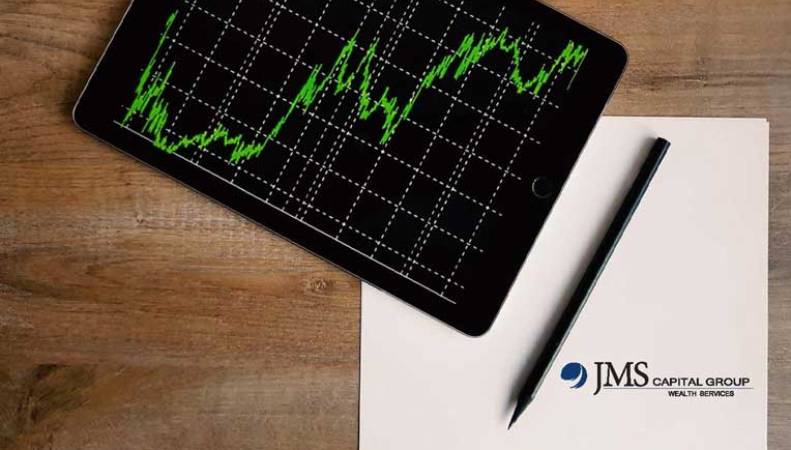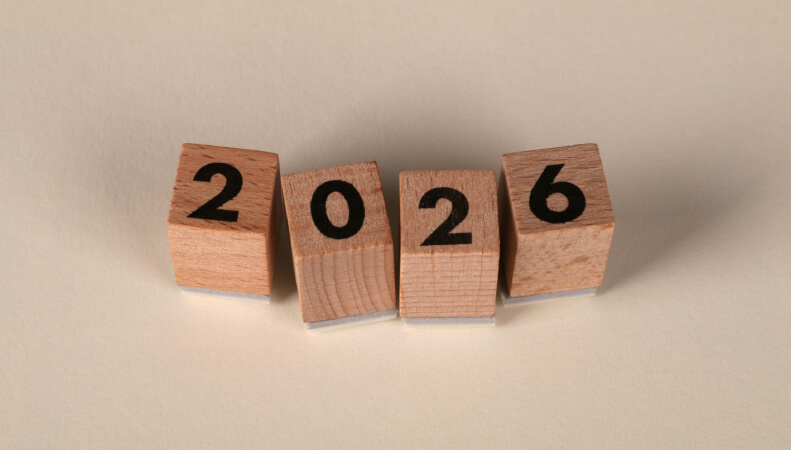By using our website, you agree to the use of cookies as described in our Cookie Policy
Blog
The Next Fed Head
President Trump recently stated his intention to choose the next Federal Reserve Chief in the near future, reportedly before he leaves Nov. 3rd for an overseas trip to Asia and Hawaii. He is working with a shortlist of five names to chair the central bank—Gary Cohn, Jerome Powell, John Taylor, Kevin Warsh,and Janet Yellen1. We don’t know who Trump will choose, but we do have some thoughts on the possible ramifications of each of the choices. Some would continue the status quo; others would likely accelerate the rate of interest rate hikes. All would be limited in that each would only be one member of the seven member board—but with Trump positioned to fill up to five vacancies during his presidency, his choice of Fed chair may yield clues as to the future direction of the central bank. And so we’ll add a few words about each of the candidates, some of whom have lengthy track records, with others being relative unknowns.
Gary Cohn—Gary Cohn is currently the National Economic Council Director. Prior to assuming this job, Cohn was the President and Chief Operating Officer of Goldman Sachs. Despite his impressive
achievements, Cohn would be a very untraditional choice for Fed chief. The last several Fed chairs have all come from academia, and the other candidates outside of academia—Powell and Warsh—have nonetheless had significant experience as members of the Federal Reserve Board.
So, Cohn leaves us with relatively few tea leaves to read as we try to deduce the direction he would take the Fed in. In the past he has indicated favoring low interest rates but not a strong US dollar2. If these views hold he would be considered dovish on interest rates. But though considered a frontrunner for the position in August, Cohn is now very much a dark horse for Fed chair.
Kevin Warsh—Kevin Warsh is a former Morgan Stanley executive who was appointed to the Fed board by George W. Bush and served during the financial crisis. He has been a Fed critic in recent years and would certainly be a hawkish choice relative to current Fed chair Janet Yellen. Warsh has criticized the Fed’s quantitative easing program and has called for the Fed to stick to its mission of maintaining stable and low inflation3. If Warsh is appointed and confirmed we would expect the Fed to raise rates at a faster pace than it has done over the past two years.
John Taylor—John Taylor is a more traditional Fed chair candidate—he previously served in the Treasury Department, and he has had a long, distinguished academic career and is currently a professor of economics at Stanford University. Taylor has made similar critiques of the Fed as Warsh—he has argued that the Fed’s quantitative easing program would make lenders less likely to extend credit and limit economic growth. Taylor has also been a deficit hawk, arguing that reducing the deficit would spur private investment, which would foresee the government’s stronger fiscal position as thereby reducing or eliminating the need for higher taxes in the future. But Taylor is best known for the Taylor Rule, which is a mathematical formula for setting interest rates that has been widely monitored as a
benchmark by central bankers3. The Taylor Rule would have raised interest rates sooner and more quickly than has actually been done by the Fed as led by Ben Bernanke and Janet Yellen. Many
economists have cast doubt on strict adherence to the Taylor Rule in a time of persistently low inflation, and expressed concerns about its possible recessionary implications if interest rates had been raised in a relatively slow growth, higher unemployment environment. Taylor himself has suggested wiggle room with his rule4, but if confirmed as Fed chair, we believe that he would nonetheless argue for raising rates more quickly that would Janet Yellen or Jerome Powell.
Janet Yellen—Janet Yellen is the current Federal Reserve chief, and if Trump selects her he would be following recent tradition in which a new president grants a second term to an incumbent appointed by his predecessor3. Needless to say, Yellen would represent continuity with current policy—a slow unwinding of the Fed’s balance sheet, along with gradual interest rate increases whose trajectory will very much be dependent on the tides of economic data. Yellen is rightly considered dovish, though some critics, such as former Treasury Secretary Larry Summers, have argued that there is no need to raise rates at all so long as inflation remains tame.
Jerome Powell—If Donald Trump wishes to appoint his own man while closely hewing to the Fed’s current path, he will likely pick current Fed board member and former investment banker Jerome
Powell. In five years at the Fed Powell has never dissented on a monetary policy vote, and his speeches have consistently been in line with the Fed consensus. However, Powell has also indicated he favors deregulation of some of Dodd-Frank’s banking rules, including softening the Volcker rule and easing some bank stress tests. He has also expressed interest in exploring whether the list of duties imposed on banks’ boards of directors could be streamlined and made less burdensome3. This combination of a Yellen-style dovish approach to interest rates along with a lighter regulatory touch may prove irresistible to Trump.
And the pick is…
President Trump is the wild card in all this, and we are not foolhardy enough to make guarantees on our prediction. But it is fun to guess, and we’ll take our shot here. According to the prediction market
website PredictIt, Cohn is considered to be a longshot, so we’ll eliminate him. Warsh and Taylor are both hawkish Fed critics, but Taylor, already a favorite among House Republicans, reportedly had great rapport with Trump at his interview5, and Taylor’s academic credentials may make the Senate confirmation process go more smoothly. Yellen and Powell are similar, but we think Trump will want to pick someone new, and that Powell’s deregulatory bent will be an extra sweetener. So it’s down to Taylor and Powell. PredictIt has Powell as the clear favorite. However, Trump has been a politician who has very much operated on instinct and rapport, while leaving policy details up to Congress. The healthcare and tax bill frameworks hewed more closely to Republican policy than to any of Trump’s
more populist positions. If we combine personal rapport with conventional Republican policies, we would conclude that John Taylor is the most likely choice, so he is our slightly contrarian pick. And as for the value of this prediction—to echo a professor we once heard—with this prediction and a token, you can ride the subway6.
And the consequences for your portfolio are…
If Yellen or Powell (or even Cohn) is the choice, we remain roughly in the status quo. If Warsh or Taylor are chosen, we would expect a Fed less inclined to undertake the extraordinary interventions of recent years, and more likely to pursue a faster path to rate normalization. In the short to intermediate future, we would expect banking stocks to do well if interest rates rise; conversely, we would expect declines in real estate and in the bond market. Since most modern recessions have been precipitated by a rise in interest rates, we would expect the risk of recession to rise as well. In the longer run, a higher interest rate should benefit savers, but could place additional stress on the overall economy.
JMS is monitoring the Fed closely and as the world changes, we will seek to make appropriate tactical adjustments to your portfolio. As we mentioned at the outset of this piece, the Fed chair is just one of seven board members, so we would expect changes in Fed policy to be adopted gradually. But with the potential of up to five Trump appointments during his presidency, we believe his choice of Fed chair will be a significant indicator of the direction the Fed will be steered in over the next several years.
— JMS Team
Sources:
1. Bloomberg article, “Trump Plans to Pick Next Fed Chair Before Nov. 3 Asia Trip”, by Jennifer Jacobs, 10/17/2017.
2. Financial Times Article, “What would a Gary Cohn-led Federal Reserve look like?”, by Jason Cummins, 8/27/2017.
3. Wall Street Journal, “Four Candidates Vie So Far to Be Federal Reserve Chief”, 10/12/2017.
4. New York Times, “Trump’s Fed Finalists Offer a Clear Choice: Status Quo or Significant Change”, by Binyamin Applebaum, 10/24/2017.
5. Bloomberg, “Taylor Impresses Trump for Fed Chairman, Warsh Slips”, by Jennifer Jacobs, Saleha Mohsin, and Craig Torres, 10/16/2017.
6. Yes, we know tokens aren’t used anymore. But token sounds better than Metrocard.
Disclosure:
This material is not intended as an offer or solicitation for the purchase or sale of any financial instrument or investment strategy. This material has been prepared for informational purposes only, and is not intended to provide, and should not be relied on for, accounting and legal or tax advice. Any forecasts contained herein are for illustrative purposes only and are not to be relied upon as advice or interpreted as a recommendation.
‹ Back








